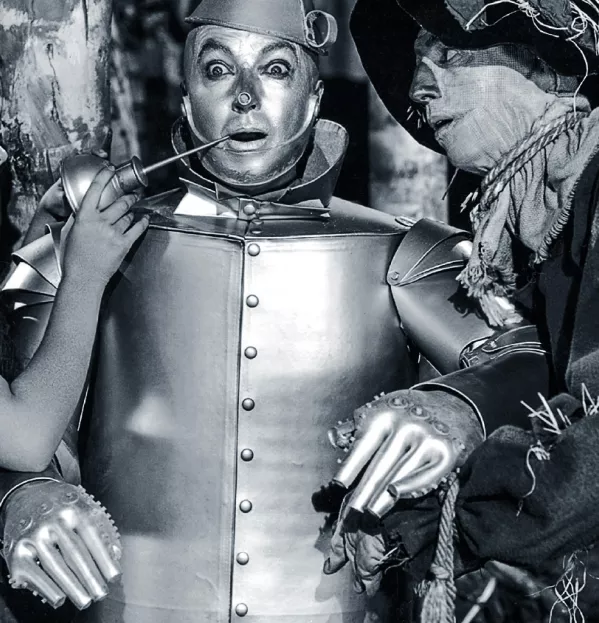Teachers have the tool to beat the AI bots: empathy

The rise of the robots, the dawn of artificial intelligence (AI), the fourth industrial revolution - and the end of school as we know it?
With driverless cars and voice-operated domestic help already bringing the stuff of science fiction into our daily lives, the implications of breakneck technological advances on the workplace is a similarly hot topic.
But teachers shouldn’t worry - their jobs will always be safe. That, at least, is the view of the chief executive of Scotland’s biggest science centre, who is in the process of preparing the country’s showcase exhibition on AI, big data and robotics.
Stephen Breslin, of Glasgow Science Centre, says that teachers’ jobs will change dramatically in the future, but that their skills will never be made redundant by AI.
He singles out an essential trait of every good teacher - one that he believes will always differentiate humans from machines: empathy.
“You could never replace that absolutely essential personal connection,” says Breslin, of the bond between student and teacher that helps identify and resolve pupils’ personal and highly specific learning problems.
So, if he were to itemise the qualities of a good teacher that cannot be replicated by AI, what would be included on the list?
“Empathy, helping young people develop social skills, communication skills, helping them explore the creative process, develop problem-solving abilities, helping them to create and imagine - these are the things that you can’t automate, and they remain the unique traits of human beings,” says Breslin.
Working side-by-side
Speaking of the technological advances heading our way, Breslin says: “We’ll use these new tools side-by-side with teachers. We’ll automate specific tasks and job functions, and the nature of jobs will change. But you’re always going to need that personal connection.”
He believes that schools and classrooms, as they strive to keep pace with a fast-changing world of work, will look very different in 20 years’ time. “In this new technology-driven world, the key skills our young people are going to have to have are based around creativity, communication, and innovative and entrepreneurial thinking,” he says.
Breslin also believes “it’ll take the formal education system some time to respond properly to that challenge”, but that the role of teacher will change fundamentally.
“What these new technologies offer is the promise of a better, more comprehensive education, which would free the teacher up to become more of a mentor and a learning coach than the source of the knowledge,” he says. “And it would allow the very best learning experience to be personalised to the capabilities of the individual, rather than trying to accommodate a range of abilities in a single classroom with a single lesson.”
This is essential, he believes, because the 21st-century workplace is collapsing the old boundaries between different skills and industries. “If you look at what’s happening in the innovation sectors, there’s an awful lot of crossover between technologies; technologies don’t exist in isolation, and more and more you’ve got to take that hybrid approach to education by not looking at individual subjects in isolation, but looking instead at how you need various bits of different subjects to create and make things, and solve problems,” says Breslin.
The good news, he adds, is that Scotland’s Curriculum for Excellence has a “very, very positive approach” based on interdisciplinary learning, and that “in many ways, Scotland is taking the lead” in education that transcends subject boundaries.
Last month, new Westminster education secretary Damian Hinds also said that technology would not replace humans in the classroom because machines are unable to replicate the “direct instruction” of teachers.
“I know there is trepidation in schools quite often and colleges about technology,” Hinds told the Education World Forum in London during his first speech in the job.
He said that Department for Education research on classroom teaching made it “absolutely clear that direct instruction is of paramount importance”, adding that “it is the inspirational teacher at the front of the class that makes a child’s education”.
Last year, however, Sir Anthony Seldon - vice-chancellor of the University of Buckingham and former master of the independent boarding school Wellington College - argued that the inspirational teachers of the future would be intelligent machines rather than humans.
Sir Anthony said: “[AI] will change human life as we know it. It will open up the possibility of an Eton or Wellington education for all.
“Everyone can have the very best teacher and it’s completely personalised. The software you’re working with will be with you throughout your education journey.”
In the Scottish Parliament last week, first minister Nicola Sturgeon said AI and automation should be viewed “not just as a threat, but as a potential opportunity - and a potentially very big opportunity” for Scottish workers.
Scotland’s Curriculum for Excellence and the Developing the Young Workforce programme were helping learners adapt to this new reality, she added.
You need a Tes subscription to read this article
Subscribe now to read this article and get other subscriber-only content:
- Unlimited access to all Tes magazine content
- Exclusive subscriber-only stories
- Award-winning email newsletters
Already a subscriber? Log in
You need a subscription to read this article
Subscribe now to read this article and get other subscriber-only content, including:
- Unlimited access to all Tes magazine content
- Exclusive subscriber-only stories
- Award-winning email newsletters